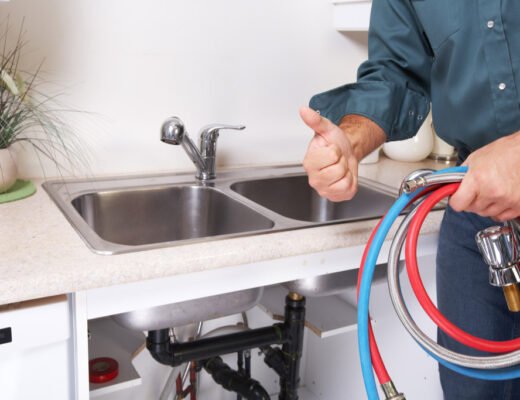PSI or sediment filters play a crucial role in various industries by effectively removing contaminants from liquid streams. Regular maintenance is essential to ensure optimal performance and longevity of filtration units. This article highlights the importance of regular maintenance for PSI filters, emphasising its benefits to operational efficiency, cost-effectiveness, and overall system reliability. This article will delve into why regular maintenance is vital for these filters.
Maximising Filtration Efficiency
Regular maintenance ensures that water treatment filters operate at their peak efficiency. Filters can accumulate dust, dirt, and other particulate matter over time, leading to clogging and decreased filtration efficiency. Performing routine maintenance tasks, such as cleaning or replacing filter elements, is crucial to remove accumulated debris. This ensures optimal filter function and maintains high-quality filtration performance.
Extending Filter Lifespan
Proper maintenance significantly extends the lifespan of sediment filters. Regularly inspecting and servicing the filters can identify potential issues early, preventing further damage or performance degradation. Implementing timely maintenance measures, such as replacing worn-out components or repairing minor damages, can effectively extend the lifespan of filters. This reduces the frequency of replacements and ultimately lowers overall maintenance expenses.
Ensuring Consistent Product Quality
Water treatment filters, vital in pharmaceuticals, food processing, and electronics manufacturing industries, contribute significantly to product quality maintenance. Scheduling routine upkeep avoids filter degradation that might result in a drop in product quality. Upholding these filters in prime condition allows businesses to retain consistent product quality, adhere to industry regulations, and protect their reputation. This routine attention to the sediment filters can significantly impact the final product quality and the overall business standing in the market.

Preventing System Downtime
A proactive stance on maintaining water treatment filters is invaluable to avert costly unplanned system downtime. By performing programmed inspections, cleaning, and upkeep tasks, businesses can spot potential problems and address them before they escalate. This forward-thinking approach reduces the risk of unexpected filter failures, guarantees continuous operations, and steers clear of expensive production delays. Hence, consistent attention to such filters contributes to a more efficient and reliable operational system, reinforcing business productivity.
Improving Energy Efficiency
Clogged or poorly functioning filters can lead to escalated energy consumption. Conducting routine upkeep on PSI filters can enhance the energy efficiency, ensure filters are clean, and minimise water flow restrictions. Pristine filters demand less energy for operation, leading to decreased energy costs and a lesser environmental footprint. Businesses can reach optimal energy efficiency through appropriate filter care and contribute positively to sustainable practices. Therefore, consistent care and attention to them are essential for operational efficiency and environmental sustainability.
Enhancing Health and Safety
Water treatment filters are crucial in water systems, eliminating impurities and potential contaminants to ensure safe, clean water. Regular inspection and cleaning are vital to prevent harmful bacteria and sediment buildup that could pose health risks. By maintaining these filters’ performance, industries can provide a healthier environment, safeguarding their employees and the quality of their products and services. Properly maintained filters ensure consistent water purity, vital for overall safety and well-being.
Compliance with Regulatory Standards
In many industries, specific regulatory standards dictate the quality of the liquid. Industries can ensure compliance with these rules by adhering to a consistent schedule for inspecting and servicing sediment filters. This routine upkeep underscores a business’s commitment to meeting regulatory expectations, averting fines and maintaining the pinnacle of quality standards. Through diligent attention to them, businesses can prioritise both legal compliance and their commitment to quality.
Conclusion
Regular maintenance maximises PSI filters’ performance, lifespan, and cost-effectiveness. By ensuring proper maintenance, businesses can maximise filtration efficiency, extend the filter lifespan, maintain product quality, prevent system downtime, improve energy efficiency, enhance health and safety, and comply with regulatory standards. Investing in regular maintenance not only protects the performance of such filters but also contributes to overall operational efficiency, cost savings, and the well-being of employees. Embracing a proactive approach to maintenance will undoubtedly yield long-term benefits, ensuring that water treatment filters continue to deliver optimal results in various industries.




